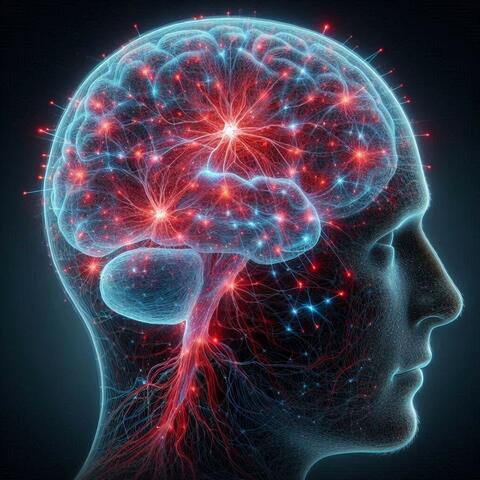
Parcours NCI
The Master’s track in Cellular and Integrated Neuroscience is designed for students passionate about understanding the intricate mechanisms of the brain, from cellular processes to system-level dynamics. This program bridges the gap between molecular neuroscience and larger-scale brain function, offering an interdisciplinary approach to studying neural circuits, neurodevelopment, synaptic transmission, and neuroplasticity. Students will gain hands-on experience with cutting-edge techniques in neuroimaging, electrophysiology, and molecular biology, while also exploring the role of the nervous system in behavior and cognition. Graduates of this program will be equipped to pursue careers in research, neuropharmacology, biotechnology, or further academic training, contributing to advancements in neuroscience and neurological health.
Key words: neural circuits; synaptic transmission; electrophysiology; neurodevelopment; behavior and cognition
MASTER NCI
Objectives
The objectives of the Master's program in Cellular and Integrated Neuroscience include:
- Develop a deep understanding of neural mechanisms: Equip students with comprehensive knowledge of molecular and cellular processes, neural circuit development, plasticity and functioning, and synaptic transmission, linking molecular mechanisms to integrated brain functions.
- Master cutting-edge research techniques: Train students in advanced experimental methods such as neuroimaging, electrophysiology, molecular biology, genetics and optogenetics to study brain function.
- Bridge basic neuroscience and clinical applications: Facilitate the understanding of how cellular and circuit-level processes contribute to neuronal disorders and potential therapeutic strategies.
- Foster critical thinking and scientific inquiry: Encourage the development of analytical and problem-solving skills necessary to design and execute innovative neuroscience research.
- Promote interdisciplinary learning: Provide a curriculum that spans across various subfields of neuroscience, integrating knowledge from development, physiology, pharmacology, and system neuroscience.
- Prepare for diverse career paths: Equip graduates to excel in research, neuropharmacology, academic careers, or industry roles related to brain function and health.
- Cultivate collaboration and communication skills: Foster collaborative skills for multidisciplinary research and the ability to effectively communicate scientific findings to both expert and non-expert audiences.
Applications
Applications will be open on the e-candidat. platform.
Please check the prerequisites for enrolment in our M2 program on the Master of Neuroscience page.
The M2S3 is organized as followed:
- Developing your Masters' research project (6ECTS) throughout semester
- Main track-specific courses (18ECTS). Several possibilities apply, as presented below:
- One course upon application (see below) + one or 2 courses from either block 1,2 or 3
- One course from each block (1, 2 and 3)
- Specialized short courses (6ECTS)
- 2 courses to choose from, each in one of the 2 series of Specialized Short Courses (MU5BIN16/MU5BIN17)

Developing your Masters' research project (6ECTS) throughout semester
Students will begin to work on the research project that they will complete during their laboratory internship; this is the module “Developing your Masters research project”. With the help of their internship supervisors, students describe, in a short-written document and during oral presentation, the design, the feasibility and the expected results of their experimental plan to answer the scientific question they will address during their lab internship.
Main track-specific courses:
- Courses upon application:
- MU5BIN10 - ENS/SU course in neurophysiology (English; 12 ECTS)
- MU5BIN09 - Pasteur Course Development and Plasticity of the Nervous System (English; 12 ECTS)
- MU5BIN15 - ICM course: Brain to Market summer school (English; 6 ECTS)
Applications for these courses must be submitted via e-candidat and will only be considered if accompanied by a letter of motivation.
- Block 1 NCI
- Block 2 NCI
- Block 3 NCI
Specialized short courses:
- Series 1 (MU5BIN16; 3ECTS)
- Spatial Navigation and Memory (English)
- Hippocampus: from cells to physiology and human pathology (English)
- Molecular neuropharmacology (English)
- Cerveau hormonal et comportement
- Imagerie cérébrale
- Modelisation Biophysique en Neurosciences Computationnelles
- Olfaction: approches multidisciplinaires en neurosciences
- Series 2 (MU5BIN17; 3ECTS)
- Cerebellum : From Cells and Circuits to Motor and Cognitive Behaviors (English)
- New Methods for Behavioral & Cognitive Explorations: Applications to Neurodegenerative diseases (English)
- Neuron-Glia Interactions (English)
- Neuro-psychiatry genetics (English)
- Pharmacological approaches in Neurosciences (English)
- Rythmes thalamo-corticaux du sommeil et de l'epilepsie-absence : des canaux ioniques à la magnétoencéphalographie
- Modèles animaux en neurosciences comportementales : de l'insecte aux primates
- Lab internship, Master’s thesis (30ECTS)
The aim of the research internship is to immerse yourself in a professional research environment where you can apply your academic knowledge to real-world scientific inquiries. This experience will allow you to develop critical research skills, including experimental design, data production and analysis, and scientific communication. Additionally, the internship fosters autonomy, problem-solving, and teamwork, while preparing you for advanced careers in research, industry, or academia. It also provides an opportunity for you to explore potential areas of specialization and to contribute to the broader scientific community through your work.
As part of the M2 program, students are required to complete a lab internship, ideally secured before the start of the third semester (S3). Some labs have already proposed internships, and these opportunities, already validated by the master’s program, will be made available to all students upon enrollment in the M2 track. However, you can also propose your own lab and research topic, which will be submitted to the program directors for approval.
The internship has a maximum duration of six months (5 month minimal period) and can take place either in France or abroad. Depending on the courses followed during your M2S3, you might have a couple of weeks or a month to spend in your hosting lab. This is a unique opportunity to immerse yourself in your internship topic and prepare your presentation for “Developing your Masters research project” evaluation.
The final defense of the internship project will take place either in June, for students applying to a Doctoral School, or in early September for all other students.
Responsables
Track directors
Stéphanie Daumas
stephanie.daumas@sorbonne-universite.fr
Richard Belvindrah
richard.belvindrah@sorbonne-universite.fr
Office - Secretary
Véronique De Surirey
veronique.de_surirey@sorbonne-universite.fr
Campus Pierre et Marie Curie
Bâtiment C - 1ere Etage - Porte 105
+33 (0)1 44 27 23 81
9, quai Saint Bernard
Case courrier 118
75252 Paris Cedex 05
